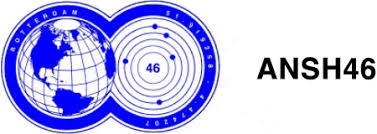Tax Benefits of Employee Participation: A Win-Win for Employer and Employee
Employee participation is a way to allow employees to share in the success of the company. This can be through shares, options, or special arrangements. It is important to know that there are tax benefits associated with employee participation. These benefits apply to both the employer and the employee. In this article, we explain what these benefits are. We look at different forms of participation and how to manage them wisely.
Forms of Employee Participation
There are various ways in which employees can participate in the company. The most well-known form is receiving shares. Here, the employee becomes a co-owner of the company. Another option is receiving options. This gives the right to purchase shares at a fixed price later. Finally, there are SAR arrangements. SAR stands for Stock Appreciation Rights. In this case, the employee does not receive actual shares, but they do get the increase in value of the shares. Each form has its own advantages and disadvantages.
Get your employee participation plan. Fixed price, arranged instantly.
- Transparent fixed price – no surprises afterwards
- Personalized plan, fully tailored to your company
- Ready-to-use Word or PDF template: buy once, use unlimited for all your employees
































































Tax Benefits for Employers
Employers can benefit from various tax advantages related to employee participation. First, the costs of these arrangements are often deductible from profits. This means less profit tax. This applies to the SAR arrangement and profit-sharing arrangements. Additionally, labor costs may decrease, as part of the salary is paid in shares or options. There are also special tax arrangements for companies that innovate and grow. These make it particularly attractive for employers to have employees share in the success.
Tax Benefits for Employees
Employees can also gain from participation arrangements. A significant advantage is that taxes usually do not have to be paid until later. For example, when the shares are sold. Sometimes, a lower tax rate applies to the profits from shares. In some cases, there are even possibilities for tax-free benefits, for example, by utilizing the work-related expenses scheme (WKR). This depends on the specific arrangement and the employee's personal situation.
Specific Tax Benefits per Participation Form
Each form of participation has its own tax rules. For shares, you pay dividend tax on the profits distributed by the company. Shares are also subject to the capital yield tax. For options, it matters when you pay the tax: when receiving the options or when exercising them. SAR arrangements offer more flexibility in tax planning. You can often choose when you want to receive the value increase and hence when you want to pay taxes.
Optimizing Tax Benefits
There are ways to maximize tax benefits. It is important to carefully consider when you grant or utilize participation. The way you set up the arrangement can also make a significant difference. It is wise to collaborate with a tax advisor. They know exactly how to structure the arrangement best for your situation. Contact us to discuss this.
Legal Frameworks and Recent Developments
The rules surrounding employee participation change regularly. Currently, there are favorable arrangements for startups and scale-ups. Legislation is also being developed to make participation easier. It is essential to stay informed about these changes. This way, you can make the most of the benefits.
Conclusion
Employee participation offers many tax benefits for both employers and employees. By smartly taking advantage of these benefits, you can create a win-win situation. It is important to choose the right form and set up the arrangement correctly. With the right approach, employee participation can lead to greater engagement, motivation, and financial benefits for everyone.
Do you want to know more about the tax benefits of employee participation? Then contact us. We can help you set up the best arrangement for your situation.
Which participation plan suits your company?
Request a free intake. In 30 minutes we discuss your needs and determine which plan suits your company.
Sweat Equity in the Netherlands: A Powerful Tool for Entrepreneurs and Startups
Sweat equity is a concept that is becoming increasingly popular in the Dutch entrepreneurial landscape. It refers to the valuable contribution someone makes to a company in the form of time, effort, and expertise, rather than financial capital.
Tax-Free Bonus: Benefits and Conditions
A tax-free bonus is an attractive way for employers to reward their employees without having to pay wage tax on it.